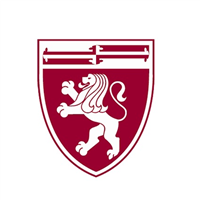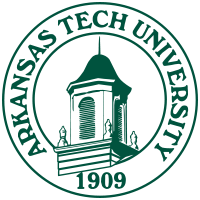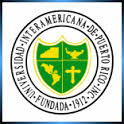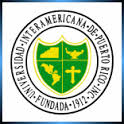What do they do?
Conduct tests on pulmonary or cardiovascular systems of patients for diagnostic, therapeutic, or research purposes. May conduct or assist in electrocardiograms, cardiac catheterizations, pulmonary functions, lung capacity, and similar tests.
Also known as:
ARRT Technologist (American Registry of Radiologic Technologists Technologist), Cardiac Catheterization Laboratory Technologist, Cardiac Catheterization Technician, Cardiac Monitor Technician, Cardiac Technician, Cardio Tech (Cardiovascular Technician), Cardiology Technician, Cardiopulmonary Technician, Cardiovascular Interventional Technologist, Cardiovascular Invasive Specialist, Cardiovascular Radiologic Technologist, Cardiovascular Technologist (CVT), Cath Lab Radiological Technologist (Catheterization Laboratory Radiological Technologist), Cath Lab Tech (Catheterization Laboratory Technologist), Computed Tomography Technologist (CTT), EEG Technician (Electroencephalogram Technician), Electrocardiogram Technician (EKG Tech), Invasive Cardiovascular Technologist, Nuclear Medicine Technologist, Perfusionist, Registered Cardiovascular Invasive Specialist (RCIS), Stress Test Technician, Vascular Technologist
-
6.5%
Change
Ranks #38 in job growth rate160Job Openings
Ranks #10 in net job growth
-
Molloy College
Rockville Centre, NY
-
Eastwick College-Nutley
Nutley, NJ
-
Eastwick College-Ramsey
Ramsey, NJ
-
Smith Chason College
Los Angeles, CA
-
Sentara College of Health Sciences
Chesapeake, VA
Looking for colleges that offer a specific major? Use the College Match Tool to find your best-matched schools and discover your estimated Net Price!
- Doctorate or Professional Degree (1%)
- Master's degree (10%)
- Bachelor's degree (30%)
- Associate's degree (18%)
- Some college, no degree (25%)
- High school diploma equivalent (13%)
- Less than high school diploma (3%)
Most Popular Majors that prepare Cardiovascular Technologists and Technicians
-
#1
-
Degrees Granted
847
-
Female Students
704
-
Male Students
143
-
Median Starting Salary
$55,200
-
-
#2
-
Degrees Granted
26
-
Female Students
24
-
Male Students
2
-
Median Starting Salary
$55,200
-
-
#3
-
Degrees Granted
18
-
Female Students
17
-
Male Students
1
-
Median Starting Salary
$55,200
-
People in this career often have these skills:
- Active Listening - Giving full attention to what other people are saying, taking time to understand the points being made, asking questions as appropriate, and not interrupting at inappropriate times.
- Speaking - Talking to others to convey information effectively.
- Critical Thinking - Using logic and reasoning to identify the strengths and weaknesses of alternative solutions, conclusions, or approaches to problems.
- Monitoring - Monitoring/Assessing performance of yourself, other individuals, or organizations to make improvements or take corrective action.
- Operations Monitoring - Watching gauges, dials, or other indicators to make sure a machine is working properly.
- Reading Comprehension - Understanding written sentences and paragraphs in work-related documents.
- Social Perceptiveness - Being aware of others' reactions and understanding why they react as they do.
People in this career often know a lot about:
- Customer and Personal Service - Knowledge of principles and processes for providing customer and personal services. This includes customer needs assessment, meeting quality standards for services, and evaluation of customer satisfaction.
- Medicine and Dentistry - Knowledge of the information and techniques needed to diagnose and treat human injuries, diseases, and deformities. This includes symptoms, treatment alternatives, drug properties and interactions, and preventive health-care measures.
- English Language - Knowledge of the structure and content of the English language including the meaning and spelling of words, rules of composition, and grammar.
- Computers and Electronics - Knowledge of circuit boards, processors, chips, electronic equipment, and computer hardware and software, including applications and programming.
People in this career often have talent in:
- Problem Sensitivity - The ability to tell when something is wrong or is likely to go wrong. It does not involve solving the problem, only recognizing that there is a problem.
- Oral Comprehension - The ability to listen to and understand information and ideas presented through spoken words and sentences.
- Oral Expression - The ability to communicate information and ideas in speaking so others will understand.
- Near Vision - The ability to see details at close range (within a few feet of the observer).
- Deductive Reasoning - The ability to apply general rules to specific problems to produce answers that make sense.
- Inductive Reasoning - The ability to combine pieces of information to form general rules or conclusions (includes finding a relationship among seemingly unrelated events).
- Speech Recognition - The ability to identify and understand the speech of another person.
- Speech Clarity - The ability to speak clearly so others can understand you.
- Written Comprehension - The ability to read and understand information and ideas presented in writing.
- Written Expression - The ability to communicate information and ideas in writing so others will understand.
- Information Ordering - The ability to arrange things or actions in a certain order or pattern according to a specific rule or set of rules (e.g., patterns of numbers, letters, words, pictures, mathematical operations).
- Perceptual Speed - The ability to quickly and accurately compare similarities and differences among sets of letters, numbers, objects, pictures, or patterns. The things to be compared may be presented at the same time or one after the other. This ability also includes comparing a presented object with a remembered object.
People in this career often do these activities:
- Test patient heart or lung functioning.
- Operate diagnostic or therapeutic medical instruments or equipment.
- Analyze test data or images to inform diagnosis or treatment.
- Explain medical procedures or test results to patients or family members.
- Maintain sterile operative fields.
- Monitor video displays of medical equipment to ensure proper functioning.
- Assist healthcare practitioners during surgery.
- Monitor patient conditions during treatments, procedures, or activities.
- Collect medical information from patients, family members, or other medical professionals.
- Record patient medical histories.
- Calculate numerical data for medical activities.
- Operate diagnostic imaging equipment.
- Inform medical professionals regarding patient conditions and care.
- Position patients for treatment or examination.
- Prepare patients physically for medical procedures.
- Administer medical substances for imaging or other procedures.
- Prepare reports summarizing patient diagnostic or care activities.
- Perform clerical work in medical settings.
- Adjust settings or positions of medical equipment.
- Enter patient or treatment data into computers.
- Prepare medical supplies or equipment for use.
- Examine medical instruments or equipment to ensure proper operation.
- Maintain medical equipment or instruments.
- Repair medical facility equipment.
- Train medical providers.
- Supervise patient care personnel.
- Schedule patient procedures or appointments.
- Order medical supplies or equipment.
This page includes data from:

 Occupation statistics: USDOL U.S. Bureau of Labor Statistics Occupational Employment Statistics
Occupation statistics: USDOL U.S. Bureau of Labor Statistics Occupational Employment Statistics
 Videos: CareerOneStop, USDOL/ETA and the Minnesota Department of Employment & Economic Development
Videos: CareerOneStop, USDOL/ETA and the Minnesota Department of Employment & Economic Development









